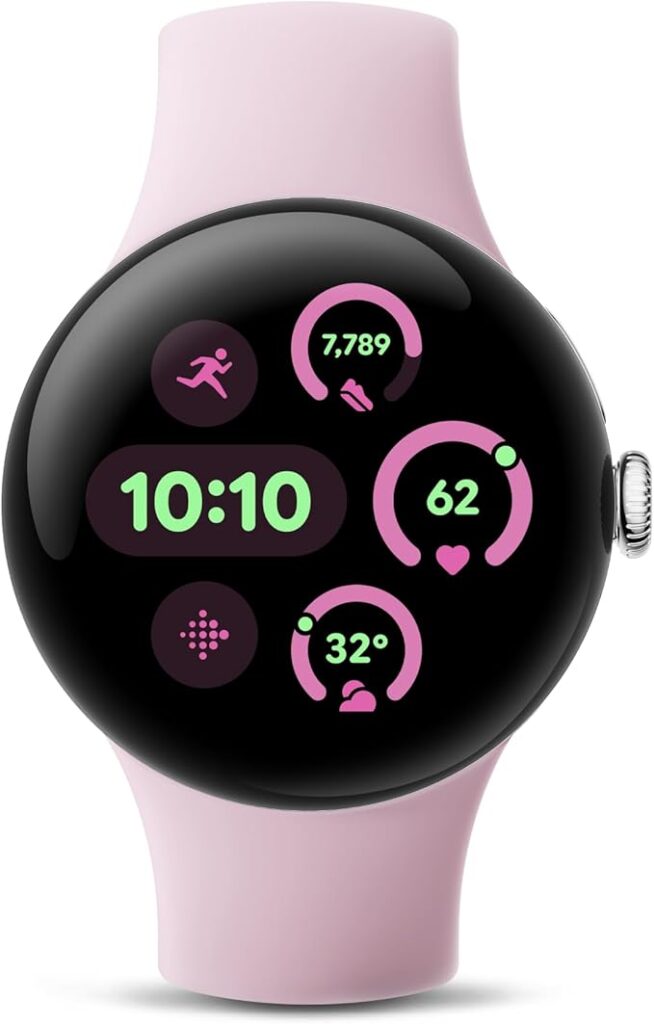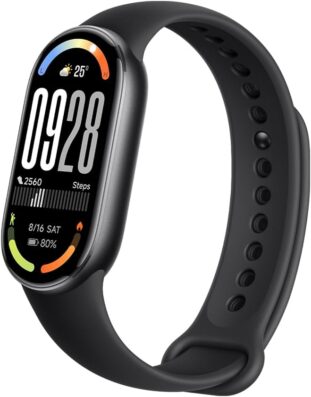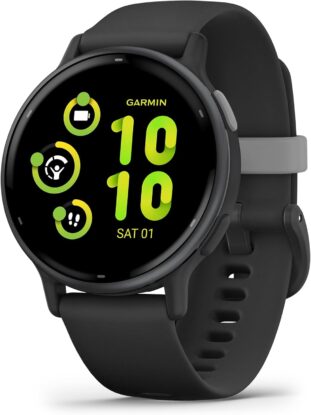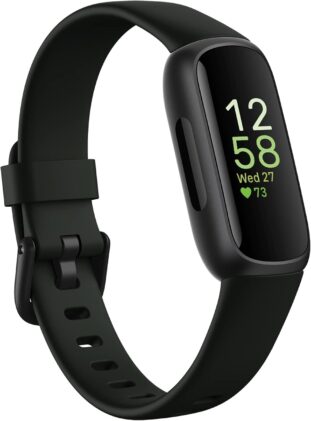Confused about whether to buy a fitness tracker vs smartwatch? Discover the pros, cons, and key differences in our senior-friendly guide of these two wearables. Compare features, battery life, safety, and prices—plus find top picks on Amazon.ca.
I’ll be honest—when I first strapped on a fitness tracker, I thought, “How hard can this be? It counts steps, right?” But then my neighbor proudly showed off her shiny smartwatch.
It not only tracked her morning walk but also let her answer calls, check the weather, and—get this—warned her when she tripped over her dog’s toy. Suddenly, my little step-counter felt a bit… basic.
That’s when I realized: the fitness tracker vs smartwatch debate isn’t as simple as it seems. For seniors, it’s not just about bells and whistles—it’s about ease of use, safety, affordability, and whether the thing actually helps you stay healthy without driving you crazy.
In this post, we’ll cover:
- The key differences between fitness trackers and smartwatches
- Which option is easier for seniors to use
- Battery life, health features, and safety considerations
- Pros and cons of each device
- Quick comparative summary table
- My top recommended picks from Amazon.ca
So let’s dig in—because choosing the wrong device can mean wasted money or, worse, a gadget that ends up living in your junk drawer.
What is a Fitness Tracker? What is a Smartwatch?
Before we compare, let’s define the basics.
Fitness Tracker Basics
Think of a fitness tracker as your digital cheerleader. It’s slim, lightweight, and built for daily activity monitoring—steps, calories burned, heart rate tracking, and sleep patterns.
Most models also add extras like blood oxygen monitoring, hydration reminders, or gentle vibration alerts when you’ve been sitting too long.
Smartwatch Basics
A smartwatch is more like a mini smartphone on your wrist. Besides tracking health, it usually supports apps, GPS navigation, text notifications, and even fall detection smartwatch safety alerts.
Some models, like the Google Pixel Watch 3 (Amazon.ca), let you pay for groceries, answer calls, or ask Google Assistant to remind you about your next doctor’s appointment.
👉 In short: fitness trackers are lean and focused, while smartwatches are feature-packed all-rounders.
Fitness Tracker vs Smartwatch for Seniors – Which is Easier to Use?
Here’s where the rubber meets the road.
- Fitness trackers are generally easier. The small screens and streamlined menus mean fewer distractions. You glance at your wrist, see your steps or heart rate, and move on. Perfect if you hate fiddling with tech.
- Smartwatches can feel overwhelming. My aunt bought one and spent a week muttering about “all these darn apps” before finally learning just how to answer a call. If you’re comfortable with a smartphone, you’ll probably adapt fine. If not, a tracker is your friend.
💡 Pro tip: Choose a device with an easy-to-read fitness tracker display. Larger fonts, bright screens, and simple icons make a world of difference for aging eyes.
Fitness Tracker vs Smartwatch Battery Life Comparison
The outcome of a comparison of battery life is not even close!
- Fitness trackers: Average 7–14 days per charge. Some, like the Xiaomi Mi Band 10 (Amazon.ca), last up to 21 days – two full weeks!
- Smartwatches: Usually 1–3 days max. High-end models with always-on displays and LTE (cellular service) drain even faster.
If you don’t like charging gadgets all the time, fitness trackers win hands down.
Health Monitoring Features Seniors Care About
Both devices track basics like steps and sleep, but smartwatches usually pull ahead with advanced health features.
- Fitness trackers:
- 24/7 heart rate tracking
- Sleep tracking devices (light, deep, REM)
- Blood oxygen monitoring (SpO2)
- Gentle wellness trackers reminders to move
- Smartwatches:
- Everything above, plus ECG apps, stress monitoring, and even fall detection smartwatch features
- Safety alerts to caregivers if you fall or have irregular heart rhythms
- Integration with health apps for seniors like Google Fit or Apple Health
So, if your main concern is keeping an eye on health metrics, both options deliver. But if you want advanced safety and monitoring, a smartwatch takes it up a notch.
Fitness Tracker vs Smartwatch for Walking and Daily Activity
I hear this question a lot: “Which is better for walking—fitness tracker or smartwatch?”
- Fitness trackers: Excellent for step counting, calories, and reminders to stay active. Great if you mostly walk indoors, around the block, or at the mall. The Xiaomi Band 10 boasts of a compass
- Smartwatches: Shine outdoors with GPS fitness watch features. The Garmin vívoactive 5 (Amazon.ca), for example, gives accurate walking and hiking routes, heart rate zones, and even nap detection for recovery.
👉 If walking is your main exercise, either will do. If hiking trails or exploring new routes is your thing, spring for the GPS in a smartwatch.
Fitness Tracker vs Smartwatch Price Comparison for Seniors
Price often makes the decision.
- Fitness trackers: $50–$150. Affordable, simple, and often enough for daily wellness.
- Smartwatches: $200–$500+. Premium features, but you’ll pay for them.
If budget matters, you can’t go wrong with a fitness tracker like the Fitbit Inspire 3 (Amazon.ca). But if you want those extra safety features and don’t mind spending more, the Google Pixel Watch 3 is worth a look.
Pros and Cons of Fitness Trackers vs Smartwatches
Here’s the quick lowdown:
Fitness Trackers
✅ Pros:
- Lightweight and comfortable
- Long battery life (Average 7–14 days)
- Affordable
❌ Cons:
- Smaller display
- Limited features
- No emergency alerts
Smartwatches
✅ Pros:
- Larger, bright display
- Advanced health & safety (ECG, fall detection)
- GPS and connectivity (calls, texts, apps)
❌ Cons:
- Short battery life (1–3 days)
- More expensive
- Learning curve for new users
Quick Comparative Summary Table
| Feature | Fitness Tracker | Smartwatch |
|---|---|---|
| Ease of Use | Simple interface, easy for seniors to navigate | More complex, requires some learning |
| Battery Life | 7–14 days on average | 1–3 days on average |
| Health Monitoring | Heart rate, steps, sleep, blood oxygen | Same features plus ECG, fall detection, stress monitoring |
| Safety Features | Basic reminders (move alerts, heart rate warnings) | Advanced safety (fall detection, emergency alerts) |
| Connectivity | Bluetooth (syncs with phone) | Bluetooth, Wi-Fi, GPS, LTE (calls, texts, apps) |
| Activity Tracking | Steps, calories, basic exercise modes | Wide range of sports, GPS for outdoor walks & hikes |
| Display | Small, simple, easy-to-read screen | Larger, high-resolution touch display |
| Price | Budget-friendly ($50–$150) | Premium ($200–$500+) |
| Best For | Seniors who want simplicity, long battery life, affordability | Seniors who want advanced health, safety, and connectivity features |
Key Recommendations – Fitness Tracker vs Smartwatch
- Best for Simplicity: Choose a Fitness Tracker if you want easy setup, long battery life, and budget-friendly health tracking.
- Best for Safety: Go with a Smartwatch if you need fall detection, GPS, and emergency alert features.
- Best for Daily Activity: Fitness trackers are great for steps, sleep, and reminders to move—ideal for seniors focusing on everyday wellness.
- Best for Active Seniors: Smartwatches offer advanced exercise modes, navigation, and connectivity for seniors who walk, hike, or stay very active.
Best Fitness Tracker vs Smartwatch Options for Seniors
Here are my top fitness trackers and smartwatches for seniors, all available on Amazon.ca:
- Fitbit Inspire 3 – Best simple tracker for beginners → Check on Amazon.ca
- Xiaomi Mi Band 10– Budget-friendly, 21-day battery → Check on Amazon.ca
- Garmin vívoactive 5 – Best for outdoor walkers/hikers → Check on Amazon.ca
- Google Pixel Watch 3 – Premium safety with fall detection → Check on Amazon.ca
Conclusion : The Debate on the Fitness Tracker vs Smartwatch Option
At the end of the day, the fitness tracker vs smartwatch decision comes down to lifestyle.
- Want simplicity, affordability, and long battery life? Get a fitness tracker like the Fitbit Inspire 3 or Xiaomi Mi Band 7.
- Need advanced safety, GPS, and connectivity? A smartwatch like the Garmin vívoactive 5 or Google Pixel Watch 3 will serve you better.
Either way, wearable tech isn’t just for the young anymore—it’s a genuine tool for seniors who want to age well, stay active, and have peace of mind.
👉 Ready to pick your best match? Check out the top choices on Amazon.ca and find the one that fits your lifestyle today.
Related Articles
- 7 Best Wearable Fitness Trackers for Seniors
- Easily Walk 10k Steps Daily for Beginners: Correct Gear
- Walking 10k Steps Per Day: 10 Easy Practical Senior Tips
Fitness Tracker vs Smartwatch FAQs
In terms of a fitness tracker vs smartwatch , which is better?
If you want simplicity and long battery life, go with a fitness tracker. If you need safety features like fall detection, or want to answer calls from your wrist, a smartwatch is the better choice.
Which fitness tracker is easiest for seniors to use?
The Fitbit Inspire 3 is one of the easiest. It has a clear display, simple menus, and works right out of the box.
Do smartwatches work without a phone?
Yes, some smartwatches with LTE (cellular models) can make calls and use apps without a phone nearby. But most still need a phone for setup and syncing.
Are fitness trackers more accurate than smartwatches?
Not necessarily. Both track steps and heart rate reliably. However, smartwatches usually have better sensors and GPS for outdoor activities.
Which is better for seniors with safety concerns?
A smartwatch like the Google Pixel Watch 3 is best. It includes fall detection smartwatch features and can alert emergency contacts automatically.




